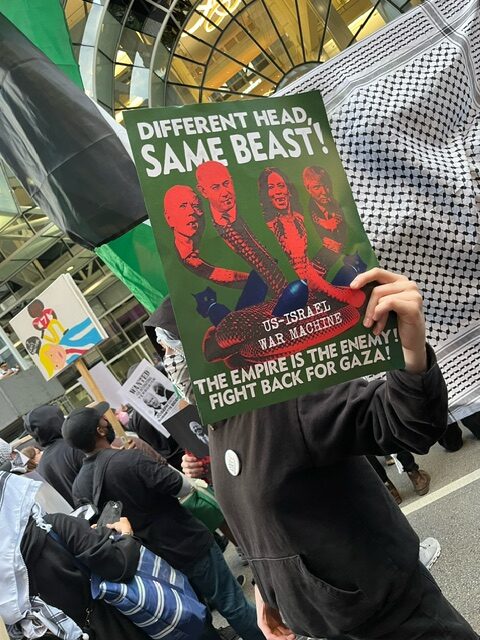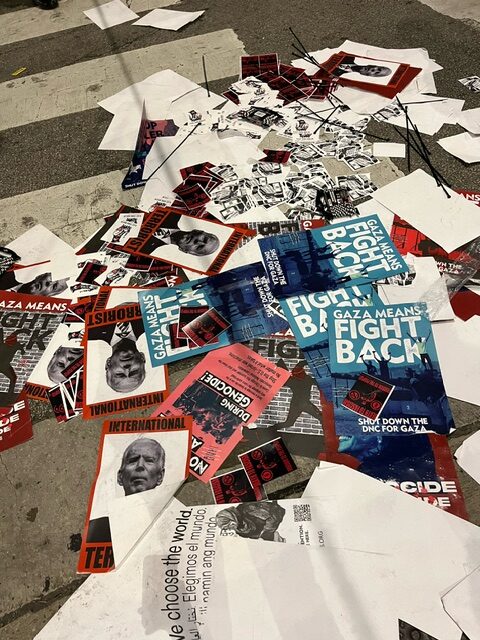William Langewiesche, a writer and pilot, once shared with me that flying a plane was “90 percent boredom, 10 percent terror.” I could say the same for the “Make it great like ’68! Shut down the [Democratic National Convention] for Gaza!” protest held in front of the Israeli consulate in downtown Chicago on Tuesday night. The event was coordinated by Behind Enemy Lines, a group known for their resistance efforts.
The protest began promptly at 7 p.m. as advertised, after weeks of promotion on Instagram and detailed information on the group’s website. Behind Enemy Lines had also conducted numerous interviews prior to the DNC, emphasizing their radical approach compared to other protest groups. They were not afraid to confront the Democrats about their imperialist actions, and their presence made a statement.

The protest attracted a large media presence and a significant number of police officers. The heavy police presence ensured that the protest remained relatively controlled and peaceful.
The protest felt somewhat orchestrated, with protesters chanting slogans and engaging in minor altercations with law enforcement. Despite the tension, the overall atmosphere was somewhat lackluster compared to spontaneous protests of the past.


The protest lacked the energy and spontaneity of previous demonstrations. The protesters seemed eager for conflict, resulting in brief confrontations with law enforcement before things calmed down.


The protest felt contrived, lacking the passion and urgency of previous demonstrations. As a journalist, I questioned the effectiveness and impact of such protests in the current social climate.
While protests for social justice are important, the repetitive nature of recent demonstrations has diminished their impact. The initial fervor of protests in 2020 has waned, and the current protests lack the same energy and purpose.
Despite the claims made by some protesters, it is essential to ensure that protests are based on accurate information and genuine motives to avoid diluting their message.
It is possible that individuals are experiencing activism exhaustion, as evidenced by the low turnout of only 1,500 participants at the March on the DNC, despite an expected 30,000 attendees. This could leave leaders feeling disappointed or even confrontational.
The protest on Tuesday seemed repetitive, with participants dressed in familiar attire and chanting the same slogans. It appeared as though they were settling for a superficial form of activism rather than actively working towards meaningful change, such as ending the war in Gaza.
Despite a small group of pro-Israeli protesters being shielded by police, tensions escalated as a group of young protesters confronted law enforcement. The unequal nature of the confrontation did not deter them, as they shouted accusations at the police and engaged in a brief chase.
Following the protest, a significant police presence was noted, including bomb-sniffing dogs and Secret Service agents. While security measures were understandable given the context of the Democratic National Convention, the heavy-handed response raised questions about the balance between maintaining order and respecting civil liberties.
Subsequent reports of numerous arrests among protesters raise further concerns about the escalation of conflict and the motivations behind such actions. It is unclear whether the police overreacted or if the protesters intentionally sought confrontation. This raises the question of whether both parties are seeking a resolution to the conflict through such confrontations.
Source link




